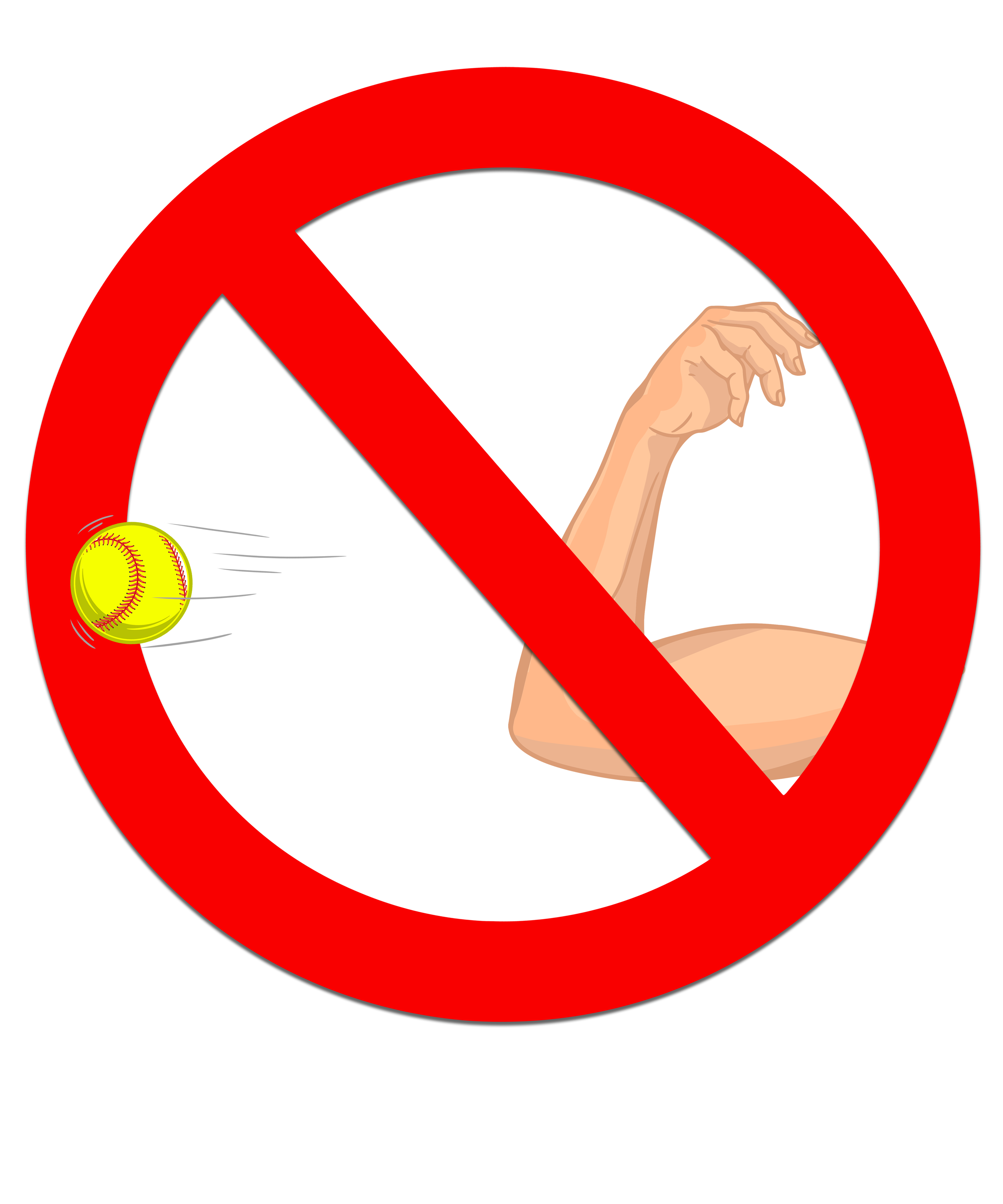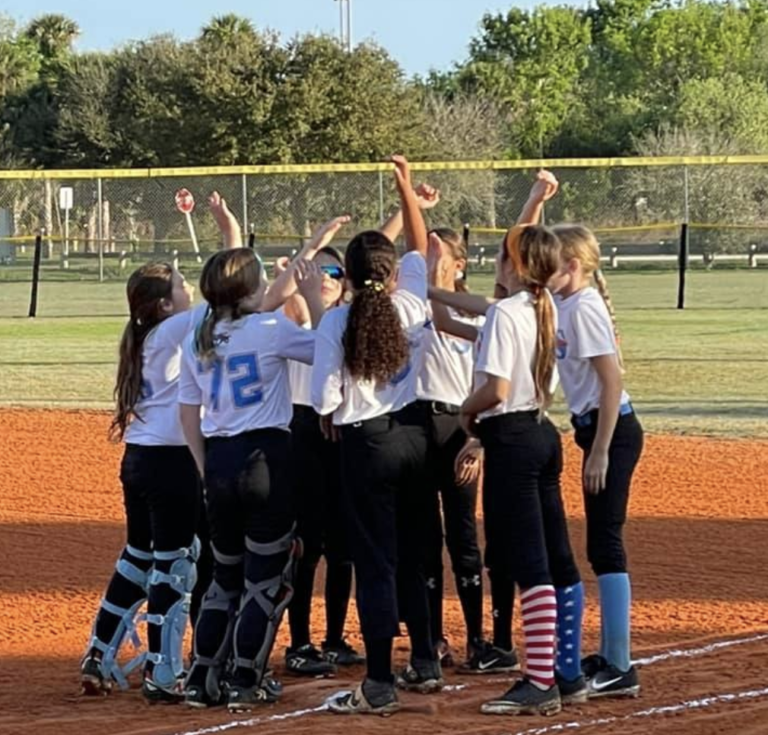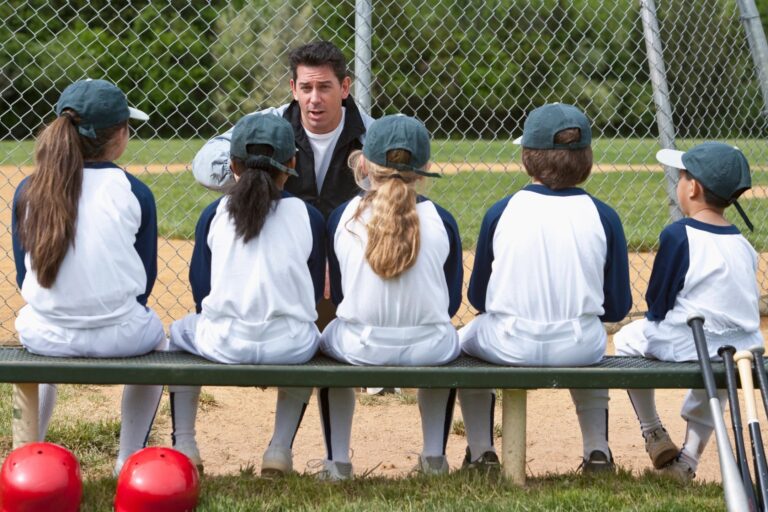When Being a “Quitter” is a Good Thing
Ah yes, the world of travel softball. I hear enough stories on a day to day basis to make your head spin. Coaches making bad calls, umpires making bad calls, kids not hustling, parents causing drama, kids causing drama- you name it. As a private coach, we tend to be the ones parents and students vent to the most. We understand where they have been and we are less bias than others in their lives. I am constantly being asked the question “should we quit?”
With the plethora of teams around today, it is easy for a player or family to be labeled a “team jumper”. We all know the kind. The kid who isn’t happy with playing time for one tournament and immediately hops to another- sometimes leaving the team in a lurch. You know- the one whose softball resume will be tarnished forever if a college coach were to ever find out! (spoiler: I don’t think many coaches care too much, unless its excessive) Kids should learn life lessons and should commit no matter what! Life is tough- get over it. Learn to sit the bench, learn to deal with the drama. Learn to not quit.
However, is that always the best course of action? I hear a lot of times from parents that they want to teach their kids the life lesson of being committed and following through. I think there is a lot of value in that. School, relationships, friendships get hard and it can be a valuable lesson for a kid to stick it through when times are tough in order to get to the other side.
Today, however, I want to offer a different perspective. I was in one of those families where you were supposed to follow through. If you started a new job or a new season of a sport, you were expected to finish it no matter what. If you signed up for a class, you finished it no matter what- and you should probably get an A. I actually played so much that I was doing basketball, volleyball, and softball year round (between school ball, league, AAU, etc). I had practices all the time, private lessons, tournaments. If it were possible for a 12 year old to burnout, I was. Now, I can’t say it was all bad. There was definitely a lot of value in 2-a-days for basketball and learning how to run without puking (takes practice lol). I learned how to push myself further than ever before. In terms of sports and school- I had a lot of follow through. On the outside- things were fine. On the inside…
Now if you guys know me at all personally- you know most of my story. I spent almost a decade in unhealthy relationships, unhealthy friendships, and alcohol abuse. I am not blaming sports for my alcohol addiction. However, I am blaming the culture of “never quit no matter what” on escalating my already downward trajectory and failing mental health.
I stayed in relationships far past their due date (even when it was toxic and abusive) because I wanted to stay true to my commitment. My fear of letting others down manifested into a crippling codependency that after almost 8 years of personal growth, sobriety, and therapy I am just NOW beginning to make progress in. I stayed an entire year at Michigan State University, in a degree I hated, because I had made a decision and wanted to follow through.
I didn’t want to be a quitter. I didn’t want that horrible label that adults gave to unruly kids or unruly families who stepped away from a team. I heard the way adults talked about other kids and families. I wanted to be better. I wanted to be coachable and good and agreeable and likeable and enough. I had falsely equated my actions and my self worth as a human being. And when I look back at my family history, this trend is not surprising. Family members staying in 50+ year marriages because “that’s what you do” and you “make a commitment”. (Meanwhile behind closed doors, people are getting abused or are just plain miserable). My immediate family members were never quitters. They stuck every season of sports out, they stuck every job out. They have amazing pensions from the jobs they hated, nice plaques on the wall from sports they hated, and wedding anniversaries that go hand in hand with miserable marriages. But they never quit.
See the problem with making “stay through every commitment no matter what” a lesson, is ignoring the “unless its really shitty and bad for you” piece. Everything is a lesson. We are always modeling something to our kids. If I never quit, how do I know what is truly bad or good for me? If I never have an out- will I stick through something that could legitimately hurt me? Show me a kid who knows when to walk away and I’ll show you a kid with good boundaries who will be able to take care of themselves as an adult. A kid who has the opportunity to quit and have it be the wrong move (or not at the right time or in the right way) will eventually learn when to quit and how to do so with integrity. Without this learning and experimenting, I worry that our children will silence their inner intuition for the sake of making adults happy. As a recovering codependent, I can tell you from experience this can ruins lives.
So how do you know if you should really quit or not? To be honest most of it comes from your gut. And a lot of it is a risk. Maybe you stay and realize later you should’ve quit sooner. Maybe you quit and realize you should’ve stuck it out. Everything can be a learning opportunity if we truly listen to our gut. But if you are still on the fence, here are a few keys I have found helpful:
- Know your why
Know your “why”, your motivation behind wanting to be in that relationship, on that team, at that school. Use others in your life to guide you and give you feedback if you are prone to lying to yourself. If my why is to have fun, I will make a different decision about a softball team than if my why is to learn the game. Or to be seen by a college coach. If your “why” lines up with the team’s “why” it can make the decision easier. (And make it easier to weather the not so good times)
2. Know your boundaries
What are your deal breakers? Can you handle tough criticism but not yelling? Can you handle sitting the bench as long as you are being shown what to fix at practice? What is the protocol for a boundary being broken? Are you willing to talk to the coach? Are you willing to quit in the middle of a game or a season? What are your ultimate boundaries?
3. Make an attempt at communication
I’m a big fan of giving people an opportunity to make things right. If you firmly know your why and your boundaries, arrange a loving confrontation with the person/coach/parent and see if they are willing to listen to your concerns. Even if they do not change, at least you are proving to yourself that you are capable of standing up for your needs and that those needs matter.
4. Get quiet with yourself
Most of the time, we know the right answer. It just takes getting quiet with ourselves, maybe meditating, and getting a clear answer. Block out all of the excess noise, the fears, the doubts. What is it your heart truly wants?
Whatever you choose, please know that you are allowed to make a further choice from there. You are allowed to change your mind. You are not obligated to stay in situations where it isn’t serving you and you are definitely allowed to leave abusive situations. (If you are a minor reading this and you feel you are being abused in any way- PLEASE TELL AN ADULT. THIS IS NOT OKAY.)
So if you need to, go be a “quitter”. Quit the things that no longer serve you, the things that make you miserable, or just the things that take up space in your already busy life. We only have a few years on this planet- might as well enjoy them!
Love and light,
Key




Great read. This insight sounds like it was based on experience and having made lots of difficult choices. I like the guidance of “know your why & boundaries”, “communicate”, and “get quiet”. If I understand, quit when the suffering is harmful or has no purpose. Coach Key is much more than just an excellent softball coach.
Great post, Keeley. The whole youth sports culture is one of “tough it out” and “never quit no matter what.” But there are plenty of valid reasons to say “enough” as you point out. If more people would leave when the behavior gets abusive, or absurdly negative, perhaps it would help weed out some of the people who shouldn’t be coaching, and programs that are tearing down our sport.